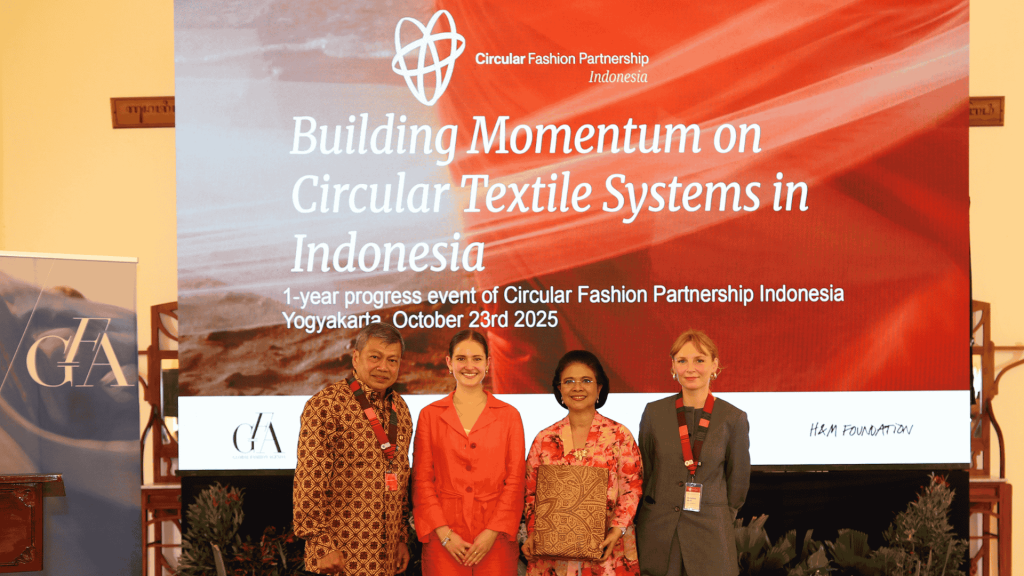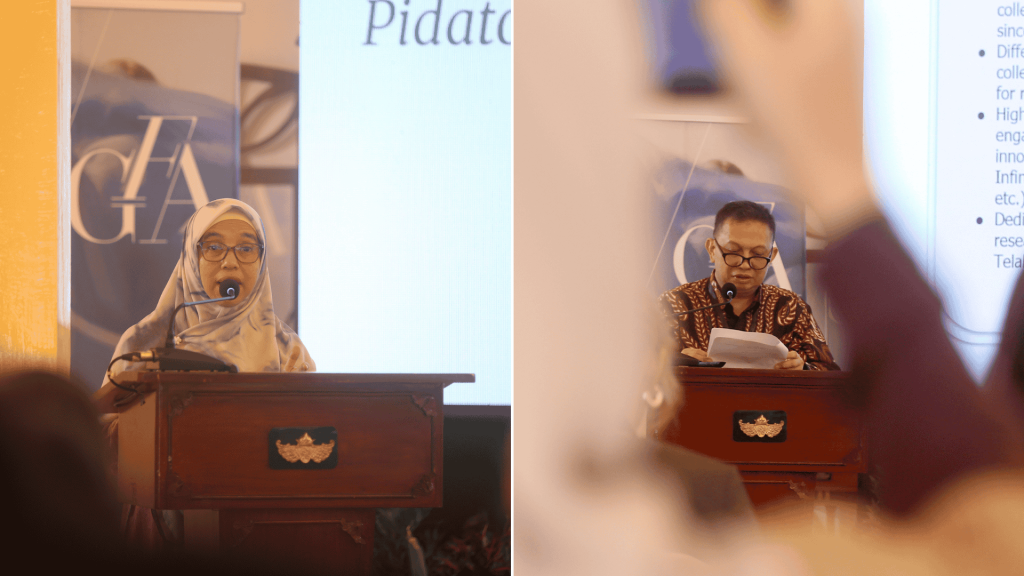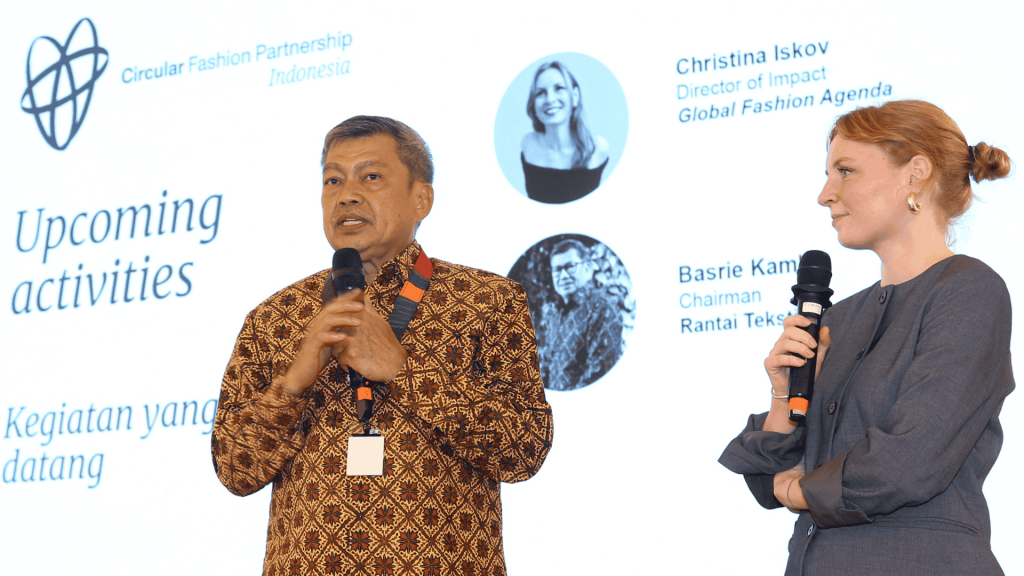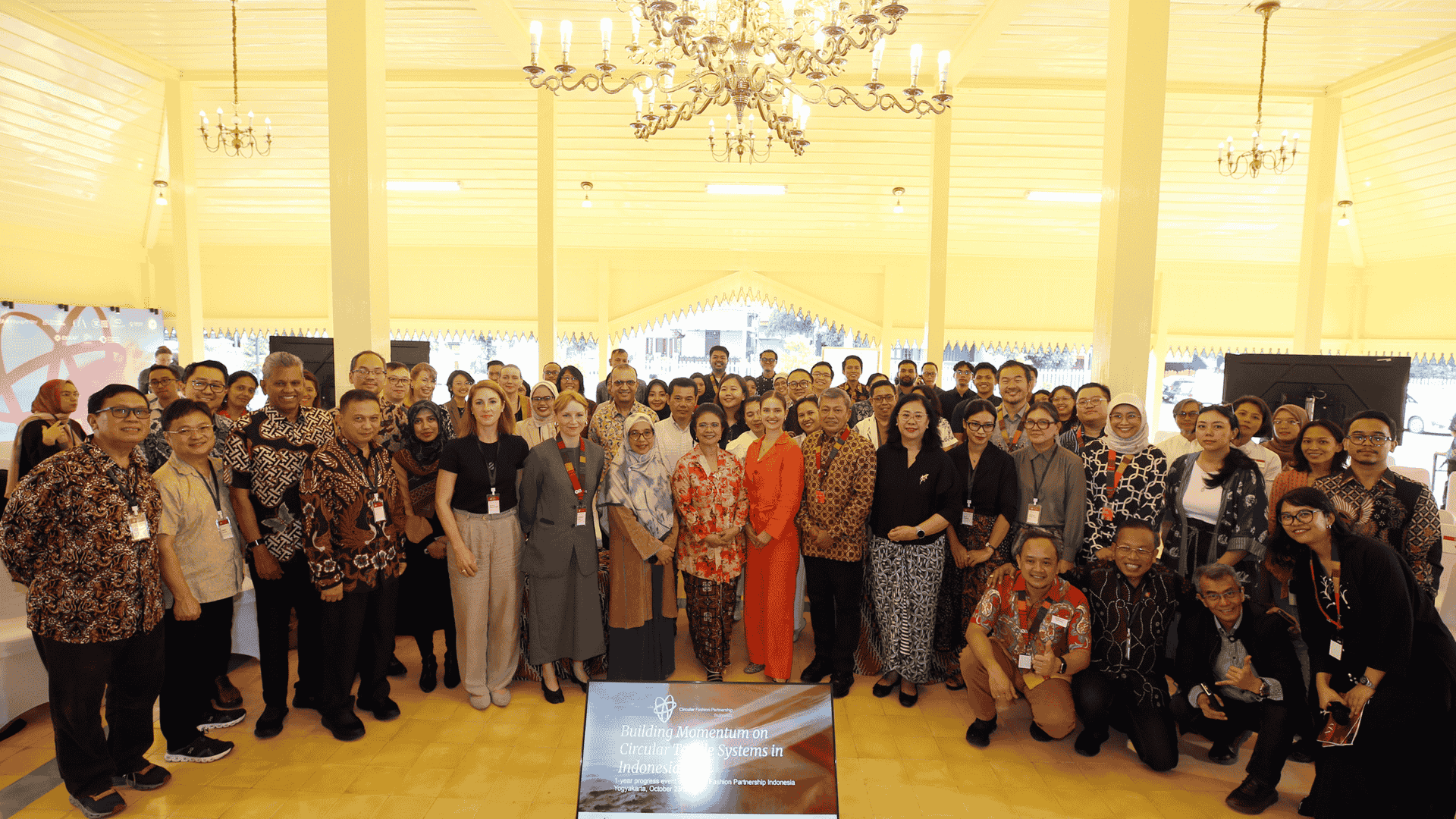Yogyakarta, 23 October 2025 — Indonesia has reaffirmed its ambition to become a major player in the global circular textile economy, pledging to accelerate circularity efforts despite ongoing challenges. The commitment was highlighted today at the first-year progress event of the Circular Fashion Partnership (CFP) – Indonesia, hosted by Global Fashion Agenda (GFA) in partnership with Rantai Tekstil Lestari (RTL), at the historic Kepatihan Kadipaten Pakualaman, Yogyakarta.
The event gathered over 100 stakeholders representing the country’s growing textile recycling ecosystem. Attendees included senior representatives from the Ministry of National Development Planning (BAPPENAS), Ministry of Creative Economy (BEKRAF), Ministry of Industry, Her Highness Gusti Kanjeng Bendara Raden Ayu Adipati Paku Alam X, and the Indonesian Textile Association (API), alongside leading industry players, global fashion brands, waste recyclers, and academic institutions.
Under the theme “Building Momentum for Circular Textile Systems in Indonesia,” participants reflected on the program’s achievements in its inaugural year and charted a joint pathway toward a more sustainable and circular textile ecosystem.
Government and Royal Endorsements for Textile Circularity

The event opened with remarks from Rantai Tekstil Lestari (RTL), Global Fashion Agenda (GFA), and a royal address by Her Highness Gusti Kanjeng Bendara Raden Ayu Adipati Paku Alam X. It was followed by keynote messages from Bappenas and BEKRAF, both emphasizing that textile circularity represents an untapped opportunity for inclusive and green economic growth — one that requires multi-stakeholder collaboration across public and private sectors.
“The government of Indonesia has Green Industry Promotion strategies, where the circular economy is included and textile industry becomes one of the prioritized sectors to be developed. The strategies called HEBAT; Hilirisasi (Downstreaming), Export oriented, Bermitra (Partnership), Aglomerasi Industri (Industrial Agglomeration), and Transition”
Rolly R. Purnomo, Secretariat Deputy for the Deputy of Economic Affairs and Digital Transformation at the Ministry of National Development Planning (BAPPENAS)

“The discussion is highly relevant to the efforts made by the Ministry of Creative Economy in promoting creative economy products that are not only unique but also globally competitive. Creative products made from textile waste will continue to grow, driving job creation in the sorting, processing, and repair sectors. The global market is also growing as the world's appreciation for recycled products increases"
Yuke Sri Rahayu, Deputy for Cultural and Design Creativity, Ministry of Creative Economy/National Agency for Creative Economy (BEKRAF)
“I am very pleased that this event can be held at the Kepatihan Kadipaten Pakualaman. Fabric scraps have become a problem in themselves, as they end up as waste. It is wonderful when textile waste can be processed into new fabric. We must have a strong commitment because the environmental impact of textile waste is enormous, and also because this waste has the potential for social and economic benefits, especially for small home-based collectors. Hopefully, the collaboration built in this forum can become an impactful solution"
Her Highness Gusti Kanjeng Bendara Raden Ayu Adipati Paku Alam X
Key Findings and Next Steps

Implementation partners presented their first-year findings and recommendations through comprehensive presentations and two panel discussions, focusing on policy frameworks for textile-to-textile recycling and industry perspectives on scaling local participation. The panelists came from various backgrounds.
Discussions underscored Indonesia’s significant potential to play a leading role in the global recycling value chain — a space that remains largely undefined. It also highlighted opportunities arising from Indonesia’s recent free-trade agreements, which could further strengthen the country’s competitiveness in sustainable manufacturing and circular textile innovation.
In parallel, the panels reflected growing optimism within the industry, as local manufacturers and industries expressed willingness to participate in the value chain, and continuously improve the quality and standards of recycled textile products to meet international demand.
Next, as the program enters its second year, CFP will continue to build partnerships, deepen evidence-based policy dialogue, scaling scalable circular solutions within Indonesia’s textile sector, as well as footwear waste mapping and aligning on chemical usage for textile recycling.
About the Circular Fashion Partnership (CFP): Indonesia
The Circular Fashion Partnership (CFP) is a two-year, cross-sectoral initiative designed to enable a close-the-loop approach to post-industrial textile waste and strengthen resilience across Indonesia’s textile and fashion industry. The program is supported by the H&M Foundation, led by Global Fashion Agenda (GFA) in partnership with Rantai Tekstil Lestari (RTL) as the local lead organization, and implemented in collaboration with Closed Loop Fashion, Reverse Resources, and Circle Economy.
The partnership engages a group of global fashion brands that have nominated 14 sourcing factories across West Java and Central Java to participate in the initiative.


